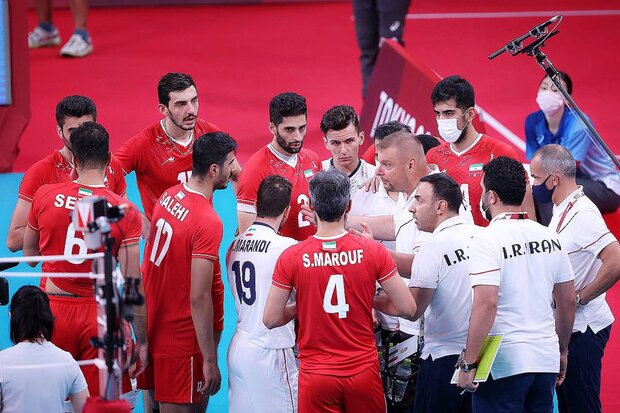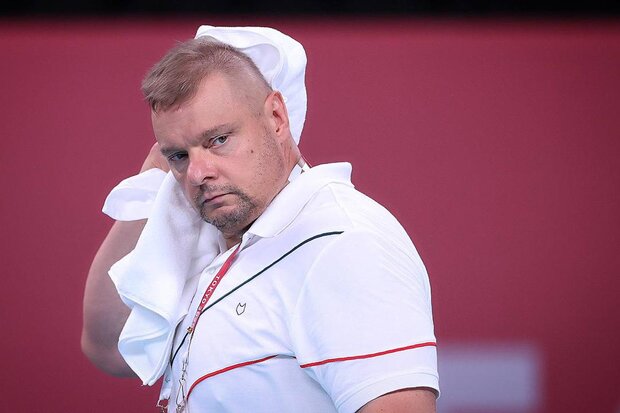The Iranian team failed to advance to the knock-out round of the Olympics in Tokyo. Vladimir Alekno’s team defeated Poland and Venezuela in the first two matches before conceding three consecutive defeats against Canada, Italy, and Japan.
“With this performance, we do not expect to be applauded but it is not right to target players and blame them. The Iranian people should know that players gave their all. If people want to blame somebody, that is me and they should blame me,” Alekno told Mehr News Agency in an exclusive interview.
The Iranian Volleyball Federation signed Russian coach Alekno in late 2020 and as officials said then, the main goal was to shine in Olympics and stand on the podium of the big event. The 54-year-old coach had no much time to get acquainted with players and their style. The only tournament that he coached the team before the Olympics was the FIVB Volleyball Nations League in Italy.
Podium expectation was unreal?
Asked whether standing on the Olympics podium was an unreal expectation or not, Alekno said “This is a question that you should ask the federation’s president. I was sure that the team has the potential to advance from the group stage. We had a step-by-step plan and if had managed to advance from the group stage then we could have talked about being among the top four.”
“I have repeatedly talked about this. When Iran has the aspiration to stand among the top four teams of the Olympics, so where should we put other teams such as Poland, Brazil, Russia, France, etc.?”

People entitled to criticize
Responding to a question regarding the criticism that many volleyball experts in Iran have regarding his performance in the team, Alekno said “When you squeeze a lemon you cannot expect to produce tomato paste! I accept all the criticisms and actually, people and experts are entitled to criticize.”
Change of generation in senior team
A change of generation in Iranian volleyball was done but one should not neglect the fact that players that were used in the Games were not so young and the Federation should not commit a mistake, he said.
“A young player in my view is the 18-year-old Bardia Saadat,” he said, adding that some players that had not been detected in the Iranian volleyball for years and are now in Team Melli as they are around 23 years old. “The national team’s jersey is a bit heavy for them. “
“18-19 year-old players should play many games for the team so that they can bring fruit when they become 22-23.”
“I hope that one would not see current players as young that can bring promising future for Iran volleyball. More work should be done in the Iranian volleyball but current players are being viewed as young and inexperienced.”

Iran’s volleyball needs more work
“There are some realities in the Iranian volleyball that one should consider; the most important is the league. If the league does not change its level and culture of volleyball, it will face more problems in the future,” Alekno said.
The Iranian volleyball will have no place in the international arena as long as 70% of players in the league use very basic and jump float serves and have bad serve receives, noted the coach.
“In the game against Japan [in the Olympics] we had technical mistakes. After the first receive, we had problems regarding the second ball and this destroys the team. There is a need to work on these issues more seriously.”
Alekno’s future in Iran
Asked about his future in the Iranian team, the Russian coach said he has enjoyed working with Iranian players. “Every one of these players aspired and wanted to achieve a better result but an aspiration is not always enough for success.”
“I appreciate the Iranian volleyball federation’s president for providing all the facilities and equipment. One again, I thank all the players for their perseverance and the pressure they tolerated.”
The coach said he had to return to Russia from Japan due to some personal issues but is ready to come back to Iran in September. He also said is ready to hold an online press conference with Iranian journalists anytime.
Interview by Sanaz Soleiman-Abadi
Translated by Mohammad Ali Haqshenas


























Your Comment